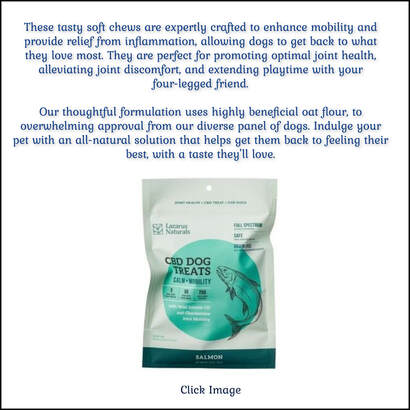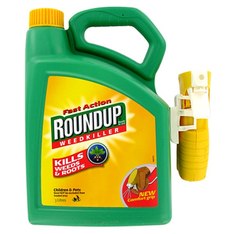Flea and Tick applications and medications
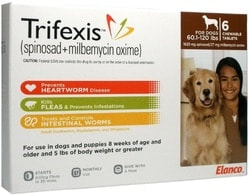
Pet Parents purchase toxic chemicals intended to kill fleas and ticks. These include collars, sprays, dusts and more. Other Pet Parents take their pets to vets to be dipped in chemicals. Many consumers probably assume that the products they and their vets use have been tested and deemed safe. After all, how could the government let deadly poisons be sold on store shelves.
Spot-On Pesticides such as Frontline Plus, Sentinal, Comfortis, Trifexis, Revolution, PetArmor, Bravecto, Hartz, NexGuard, K9 Advantix II, Biospot and Advantage just to name a few, can trigger adverse reactions, cause seizures, autoimmune disorders, shorten life spans, cause terminal illness, and premature death.
Spot-On Pesticides such as Frontline Plus, Sentinal, Comfortis, Trifexis, Revolution, PetArmor, Bravecto, Hartz, NexGuard, K9 Advantix II, Biospot and Advantage just to name a few, can trigger adverse reactions, cause seizures, autoimmune disorders, shorten life spans, cause terminal illness, and premature death.
The active ingredients in these solutions include chemicals such as imidacloprid, fipronil, permethrin, methoprene, and pyriproxyfen, all of which have caused serious health problems in animals. Even some of the inactive ingredients can be hazardous to your pet. Other forms of flea control powders (including carpet powders), collars, and sprays are no less dangerous to you or your pets.
Immediate effects of pesticide overdose include vomiting, diarrhea, trembling, seizures, and respiratory problems. If your dog or cat shows any of these symptoms after the application of a pesticide, immediately wash the product off and seek immediate emergency veterinary care. Pets are sicker than ever.
Veterinarians have seen a huge increase in the rate of liver disease, nervous system disorders, cancers, diabetes, renal failure and other diseases.
Popular anti-flea and anti-tick medications are extremely toxic to the liver.
To read more on these medications...click here.
Immediate effects of pesticide overdose include vomiting, diarrhea, trembling, seizures, and respiratory problems. If your dog or cat shows any of these symptoms after the application of a pesticide, immediately wash the product off and seek immediate emergency veterinary care. Pets are sicker than ever.
Veterinarians have seen a huge increase in the rate of liver disease, nervous system disorders, cancers, diabetes, renal failure and other diseases.
Popular anti-flea and anti-tick medications are extremely toxic to the liver.
To read more on these medications...click here.
Complete List: http://www.epa.gov/pesticides/health/prodname-reg.pdf
Heartworm Medications
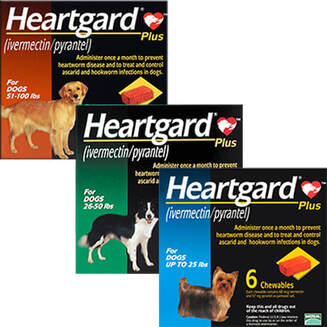
I imagine you have heard all the hype about heartworm preventative medications. Well it's true. They do not prevent, just like a flu shot doesn't prevent you from getting the flu.
According to the American Veterinary Medical Association (AVMA), 65% of adverse drug reactions and 48% of all reported deaths resulting from drug reactions are caused by heartworm preventatives. The safest thing you can do for your pet is speak with a holistic vet and/or have your dog heartworm tested every 6 months while not using heartworm preventatives. If your dog DOES happen to get heartworms, there are herbal remedies (all safe) that you can purchase to rid your dog of these worms. Heartworms doesn't mean a death sentence. They can be treated easily and naturally without using any deadly toxic injections or medications. You will just need to stay on top of the testing though every 6 months. Heartworms do not kill a dog over night. It takes 6-9 months after the initial bite from the infected mosquito for your dog to become HW positive. Then months before you see any signs of being positive. An infected mosquito can bite a dog and for the dog to get heartworms, the conditions must be right. Also the temps outside need to be 57 degrees or above for at least 2 weeks.
These medications are toxic to the body. If your pet has a strong immune system and on a species appropriate diet, the odds of getting heartworms are slim. Medications such as steroids, antibiotics, and overused medications along with over vaccinating will break down the body's immune system leaving it open for illness and disease. For building a strong immune system..click here.
The potential side effects of Ivermectin (the active ingredient in Heartgard) include liver problems, vomiting, diarrhea, loss of appetite, depression, lethargy, skin eruptions, seizures, tremors, paralysis, autoimmune disorders, thyroid problems, fever, weakness, dizziness, coughing, nosebleeds, difficulty breathing, pneumonia, irritability, sudden aggressive behavior, nerve damage, fertility problems, and sudden death. Other chemical heartworm preventatives like Proheart 6 and others have many of the same side effects. Some are even worse.
According to the American Veterinary Medical Association (AVMA), 65% of adverse drug reactions and 48% of all reported deaths resulting from drug reactions are caused by heartworm preventatives. The safest thing you can do for your pet is speak with a holistic vet and/or have your dog heartworm tested every 6 months while not using heartworm preventatives. If your dog DOES happen to get heartworms, there are herbal remedies (all safe) that you can purchase to rid your dog of these worms. Heartworms doesn't mean a death sentence. They can be treated easily and naturally without using any deadly toxic injections or medications. You will just need to stay on top of the testing though every 6 months. Heartworms do not kill a dog over night. It takes 6-9 months after the initial bite from the infected mosquito for your dog to become HW positive. Then months before you see any signs of being positive. An infected mosquito can bite a dog and for the dog to get heartworms, the conditions must be right. Also the temps outside need to be 57 degrees or above for at least 2 weeks.
These medications are toxic to the body. If your pet has a strong immune system and on a species appropriate diet, the odds of getting heartworms are slim. Medications such as steroids, antibiotics, and overused medications along with over vaccinating will break down the body's immune system leaving it open for illness and disease. For building a strong immune system..click here.
The potential side effects of Ivermectin (the active ingredient in Heartgard) include liver problems, vomiting, diarrhea, loss of appetite, depression, lethargy, skin eruptions, seizures, tremors, paralysis, autoimmune disorders, thyroid problems, fever, weakness, dizziness, coughing, nosebleeds, difficulty breathing, pneumonia, irritability, sudden aggressive behavior, nerve damage, fertility problems, and sudden death. Other chemical heartworm preventatives like Proheart 6 and others have many of the same side effects. Some are even worse.
Steroids (cortisone, prednisone etc)
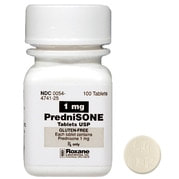
Steroids are known to cause kidney and liver damage. We also know it can cause brittle bones, diabetes, gastrointestinal ulcers (especially if corticosteroids are combined with other types of anti-inflammatory medications), cushing's syndrome, eye disease, adrenal insufficiency, an inability to deal with stress, and damage to the immune system.
Doctors tell you that steroids only cause side effects after many years. But new research shows that permanent damage is immediate and devastating. Studies show that steroids cause permanent, debilitating effects after a single dosage.
A pets behavior may change while taking prednisone. Side effects can include increased aggression and a more "high strung" attitude. Dogs may also experience increased anxiety, fear and restlessness.
Excessive hunger, thirst and frequent urination and weight gain in dogs is common as well. Ulcers, diarrhea and vomiting is common. You can give this with food to help eliminate this.
Hair loss, wasting, coat and skin problems are also other symptoms from prednisone use. Constant use can also cause Cushing's which is incurable.
These should be given on a short term use (two weeks or less) only and in emergency situations concerning life or death.
Doctors tell you that steroids only cause side effects after many years. But new research shows that permanent damage is immediate and devastating. Studies show that steroids cause permanent, debilitating effects after a single dosage.
A pets behavior may change while taking prednisone. Side effects can include increased aggression and a more "high strung" attitude. Dogs may also experience increased anxiety, fear and restlessness.
Excessive hunger, thirst and frequent urination and weight gain in dogs is common as well. Ulcers, diarrhea and vomiting is common. You can give this with food to help eliminate this.
Hair loss, wasting, coat and skin problems are also other symptoms from prednisone use. Constant use can also cause Cushing's which is incurable.
These should be given on a short term use (two weeks or less) only and in emergency situations concerning life or death.
Vaccines
Vaccines are a huge cause of illnesses in pets today. From allergic reactions, autoimmune disorders, hair loss, skin conditions, aggressive behavior, arthritis, kidney and liver disease and failure, thyroid conditions, seizures, cancer, immune-mediated thrombocytopenia, heart disease, diabetes, asthma, inflammatory bowel disease, and ear infections. This is just to name a few. This list goes on and on. Vaccines contain also aluminum and mercury which causes autism in children. Vaccines are a waste of pet parents money and a money maker for veterinarians. Puppies should only get the initial vaccines, then after that, titer if you feel necessary. Most vaccines are good for a lifetime. Pets that have a weakened immune system should NOT be vaccinated under any circumstances. Rabies are a 3 year vaccine. The catch is, if a vet has on the label that it is a one-year vaccine, that vet can say it is good only for one year and stand behind it. So a lot is riding on what your vet has to say and agrees to. So find a vet that will work with you. Rabies are required by law, so it is necessary to give these although some cities accept titers. ( FYI-some cities do have an ordinance that requires your pet to have a rabies yearly. Check with your city on this).
The ONE thing you can do is request the Thimerosal Free vaccine (Merial IMRAB TF). These are given most of the time to ferrets and cats. It has a RED label. If you have a pet under 12 lbs, ask for half of the vaccine instead. This is allowed with all vaccines except Rabies. They must get the full dose but I hope to see this change in the near future.
Note: Any dog under 12 lbs should not get these vaccines. PLEASE try titering for immunity.
A 1-lb chihuahua just died from a vaccine because it received the FULL dose.
The ONE thing you can do is request the Thimerosal Free vaccine (Merial IMRAB TF). These are given most of the time to ferrets and cats. It has a RED label. If you have a pet under 12 lbs, ask for half of the vaccine instead. This is allowed with all vaccines except Rabies. They must get the full dose but I hope to see this change in the near future.
Note: Any dog under 12 lbs should not get these vaccines. PLEASE try titering for immunity.
A 1-lb chihuahua just died from a vaccine because it received the FULL dose.
If you feel your pet has had a serious reaction to a vaccine or is chronically ill, tell your vet so that he/she can provide a waiver so that you no longer need to give the Rabies in the future. (You will still be liable for any dog bites or rabid skunks biting your dog. So know what your restrictions are before deciding on waving a Rabies vaccine.) TITER INSTEAD!! For reactions to help offset these vaccines, give Lyssin for rabies and Thuja for the other vaccines. All vaccines that are given should be in single doses. NO COMBO's and not to be given on the same day, nor on surgery day. Not to be given to weakened immune systems or ill or diseased pets. Vaccine reactions can occur two months after the vaccine is given..so keep this in mind that reactions may not happen immediately. For more information on vaccine reactions.. click here.
Know the vaccines containing aluminum. For dogs, some vaccines containing aluminum are Rabies, Lyme, and Leptospirosis.
For humans, there are the vaccines for Anti-Tetanus, Hepatitis B, Anthrax, and Rabies. Doctors and veterinarians alike should know how aluminum-sensitive the patient is, to avoid unwanted symptoms. If we want our dog to avoid too much exposure from aluminum, then we can choose not to have it vaccinated, if it is not too important.
Know the vaccines containing aluminum. For dogs, some vaccines containing aluminum are Rabies, Lyme, and Leptospirosis.
For humans, there are the vaccines for Anti-Tetanus, Hepatitis B, Anthrax, and Rabies. Doctors and veterinarians alike should know how aluminum-sensitive the patient is, to avoid unwanted symptoms. If we want our dog to avoid too much exposure from aluminum, then we can choose not to have it vaccinated, if it is not too important.
Antibiotics
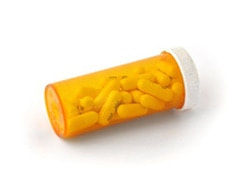
Information By: Catherine O' Driscoll
Antibiotic use is very important when medically indicated for the treatment of susceptible pathogens (usually bacterial.) However, there are some major concerns about antibiotic use. First among the concerns is that fact that the most common diseases are viral in origin, none of which are susceptible to antibiotic therapy. In addition, widespread antibiotic use may reduce the animals' innate flora (colonization) resistance, actually worsening outbreaks of disease. Finally, widespread use of antibiotics may promote the evolution of resistant strains of bacteria.
Documenting that an infection is there
You should only treat a dog or cat with antibiotics if you are sure that an infection is present. Unfortunately, many vets will prescribe antibiotics ‘just in case’. The best way to determine if an infection is present is through a laboratory culture of an appropriate sample. Culturing has the additional advantages of confirming the identity of the bacteria and determining which antibiotics are appropriate choices for treatment. The next "best" indication of infection would be if the animal is sick in a way that suggests an infection: fever, elevated white blood cells, inflammation, and/or x-rays or other tests with results that suggest certain types of infection.
Adverse effects of antibiotics
There are three main problems with using antibiotics. One is direct medical side-effects such as toxic effects (e.g. aminoglycoside antibiotics are toxic to kidney cells) or allergies (which can be life-threatening). The second is that your antibiotic could kill the normal flora and leave the patient more vulnerable to pathogens (often which are resistant to antibiotics). The last problem is that using antibiotics genetically selects for antibiotic resistance in your bacteria. It may develop if the bacteria has a genetic mutation, but this is an uncommon source of the problem. More commonly, other bacteria in the environment share genes that code for resistance on plasmids. If bacteria are spreading plasmids to other bacteria in the environment, they pose a risk to any animal the bacteria could infect (including humans). Whenever you use an antibiotic, you are applying artificial selection for resistance genes.
Specific antibiotics and their side-effects
Penicillins: Cidal, disrupt cell wall. Spectrum: broad except bacteria with specific resistance. For general use. Side-effects: allergy, fever, rash, loss of white blood cells, anemia, GI upset.
Aminoglycosides: Cidal Used for severe or resistant gram-negative bacteria, must be injected (except neomycin). Side-effects: severe kidney damage, hearing loss, facial swelling, nerve damage.
Amikacin, Gentamycin, Neomycin: Not given by injection because of severe kidney damage, not absorbed into bloodstream if eaten/used as enema/applied to skin but will treat bacteria in GI tract, on skin.
Cephalosporins: Cidal, disrupt cell wall. Main use: skin disease, susceptible infections. Side-effects: allergy (cross-reactions with penicillins), GI disease, diarrhea.
Tetracyclines: Static, inhibit protein synthesis. Broad-spectrum (but many resistant bacteria), rickettsias, other bacteria that live in cells. Main use: hemobartonella, susceptible bacteria. Side-effects: GI upset, discolored teeth, liver/kidney disease, hair loss, photosensitivity.
Clindamycin (Antirobe): Static or cidal, disrupts protein synthesis. Spectrum: gram-positive bacteria, anaerobic bacteria. Main use: dental disease, abscesses, diarrhea. Side-effects: GI upset. Rare cases - heart failure/cardiac arrest.
Erythromycin: Mostly static, inhibits protein synthesis of bacteria. Spectrum: gram-positive bacteria, rickettsias, Chlamydophila, et al. Main use: Giardia, anaerobes, diarrhea. Side-effects: neurological problems, white blood cell reduction, liver damage, blood in urine, vomiting and diarrhea.
Tylosin (tylan): Static, inhibits protein synthesis of bacteria. Spectrum: variable. Main use: diarrhea, inflammatory bowel disease. Side-effects: few.
Enrofloxacin (baytril): Cidal, inhibits DNA gyrase, synthesis. Spectrum: gram-negative bacteria, Brucella, Chlamydophila, Staph, Mycoplasma. Main use: various infections resistant to other antibiotics. Side-effects: cartilage damage in young animals, urine crystals, GI disease.
Sulfa drugs: Static, interferes with enzyme systems essential to normal metabolic and growth patterns. Side effects: nausea, vomiting, fever, anemia, leukopenia and irritation of the liver or kidneys.
Metronidazole (Flagyl): cidal, disrupts DNA synthesis? Spectrum: anaerobic bacteria, some protozoa (Giardia, amoebas). Main use: Giardia, anaerobes, diarrhea. Side-effects: neurological problems, white blood cell reduction, liver damage, blood in urine, vomiting and diarrhea.
Rifampin (Rifadin or Rimactane): cidal or static, inhibits RNA polymerase. Spectrum: intracellular bacteria (Mycobacteria, Staph, Rhodococcus, Chlamydophila et al.), some fungi, some viruses. Main use in cats: with antifungals in brain fungal disease. Side-effects: discolored tears and urine, GI upset, liver damage (very high doses).
Antibiotic use is very important when medically indicated for the treatment of susceptible pathogens (usually bacterial.) However, there are some major concerns about antibiotic use. First among the concerns is that fact that the most common diseases are viral in origin, none of which are susceptible to antibiotic therapy. In addition, widespread antibiotic use may reduce the animals' innate flora (colonization) resistance, actually worsening outbreaks of disease. Finally, widespread use of antibiotics may promote the evolution of resistant strains of bacteria.
Documenting that an infection is there
You should only treat a dog or cat with antibiotics if you are sure that an infection is present. Unfortunately, many vets will prescribe antibiotics ‘just in case’. The best way to determine if an infection is present is through a laboratory culture of an appropriate sample. Culturing has the additional advantages of confirming the identity of the bacteria and determining which antibiotics are appropriate choices for treatment. The next "best" indication of infection would be if the animal is sick in a way that suggests an infection: fever, elevated white blood cells, inflammation, and/or x-rays or other tests with results that suggest certain types of infection.
Adverse effects of antibiotics
There are three main problems with using antibiotics. One is direct medical side-effects such as toxic effects (e.g. aminoglycoside antibiotics are toxic to kidney cells) or allergies (which can be life-threatening). The second is that your antibiotic could kill the normal flora and leave the patient more vulnerable to pathogens (often which are resistant to antibiotics). The last problem is that using antibiotics genetically selects for antibiotic resistance in your bacteria. It may develop if the bacteria has a genetic mutation, but this is an uncommon source of the problem. More commonly, other bacteria in the environment share genes that code for resistance on plasmids. If bacteria are spreading plasmids to other bacteria in the environment, they pose a risk to any animal the bacteria could infect (including humans). Whenever you use an antibiotic, you are applying artificial selection for resistance genes.
Specific antibiotics and their side-effects
Penicillins: Cidal, disrupt cell wall. Spectrum: broad except bacteria with specific resistance. For general use. Side-effects: allergy, fever, rash, loss of white blood cells, anemia, GI upset.
Aminoglycosides: Cidal Used for severe or resistant gram-negative bacteria, must be injected (except neomycin). Side-effects: severe kidney damage, hearing loss, facial swelling, nerve damage.
Amikacin, Gentamycin, Neomycin: Not given by injection because of severe kidney damage, not absorbed into bloodstream if eaten/used as enema/applied to skin but will treat bacteria in GI tract, on skin.
Cephalosporins: Cidal, disrupt cell wall. Main use: skin disease, susceptible infections. Side-effects: allergy (cross-reactions with penicillins), GI disease, diarrhea.
Tetracyclines: Static, inhibit protein synthesis. Broad-spectrum (but many resistant bacteria), rickettsias, other bacteria that live in cells. Main use: hemobartonella, susceptible bacteria. Side-effects: GI upset, discolored teeth, liver/kidney disease, hair loss, photosensitivity.
Clindamycin (Antirobe): Static or cidal, disrupts protein synthesis. Spectrum: gram-positive bacteria, anaerobic bacteria. Main use: dental disease, abscesses, diarrhea. Side-effects: GI upset. Rare cases - heart failure/cardiac arrest.
Erythromycin: Mostly static, inhibits protein synthesis of bacteria. Spectrum: gram-positive bacteria, rickettsias, Chlamydophila, et al. Main use: Giardia, anaerobes, diarrhea. Side-effects: neurological problems, white blood cell reduction, liver damage, blood in urine, vomiting and diarrhea.
Tylosin (tylan): Static, inhibits protein synthesis of bacteria. Spectrum: variable. Main use: diarrhea, inflammatory bowel disease. Side-effects: few.
Enrofloxacin (baytril): Cidal, inhibits DNA gyrase, synthesis. Spectrum: gram-negative bacteria, Brucella, Chlamydophila, Staph, Mycoplasma. Main use: various infections resistant to other antibiotics. Side-effects: cartilage damage in young animals, urine crystals, GI disease.
Sulfa drugs: Static, interferes with enzyme systems essential to normal metabolic and growth patterns. Side effects: nausea, vomiting, fever, anemia, leukopenia and irritation of the liver or kidneys.
Metronidazole (Flagyl): cidal, disrupts DNA synthesis? Spectrum: anaerobic bacteria, some protozoa (Giardia, amoebas). Main use: Giardia, anaerobes, diarrhea. Side-effects: neurological problems, white blood cell reduction, liver damage, blood in urine, vomiting and diarrhea.
Rifampin (Rifadin or Rimactane): cidal or static, inhibits RNA polymerase. Spectrum: intracellular bacteria (Mycobacteria, Staph, Rhodococcus, Chlamydophila et al.), some fungi, some viruses. Main use in cats: with antifungals in brain fungal disease. Side-effects: discolored tears and urine, GI upset, liver damage (very high doses).
I would also like to add Doxycycline to this list. Doxy has many serious side effects. Please research this drug before giving. ~ H.O.P.S.
Immiticide
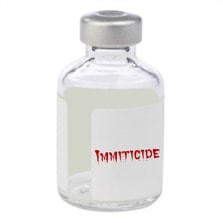
If you have ever had a dog that was heartworm positive, then you're probably familiar with this. It's what is used at the vets office that's injected into your dog. This is poison..literally. The vets do this to make money. THAT'S IT!!!! There are so many other ways to treat heartworm positive dogs. This junk needs to be in the garbage and never used on another dog. EVER!!! The odds of the dog making it through these injections are like a roll of the dice. The way you can treat a dog with heartworms are two ways. One is the Slow Kill treatment with Doxycycline and Ivermectin (what's in Heartgard plus)..OR you can treat the dog with all natural herbs. Neither of these will a vet tell you about because the cost is next to nothing compared to these deadly injections therefore they cannot make any money. Using Immiticide can cost anywhere from $300-$3000 dollars. Cost for treating the slow kill protocol (Ivermectin and doxycycline) under $100 (unless Doxy has raised in price), cost for herbal remedy (without an RX), $100-$400. DO NOT put your dog through unnecessary suffering just because the vet wants to line his/her pockets with your money. Immiticide is a money trap. If your vet insists..find a new vet that is willing to work with you on slow kill or buy the herbal remedy and do it yourself. Now with that all said, anytime a dog has heartworms and you go to treat your dog, always look out for any problems/side effects. Sometimes even the safest treatments can dislodge a worm. So if your dog begins to act unusual or out of the norm..coughing, lethargic etc..call your vet immediately. Do not wait!
After getting the injection of Immiticide, side effects can occur: pain at the injection site, restlessness, breathing issues, change in behavior, organ failure, and death. These injections are putting poison into your dog's veins. You have to keep the dog crated for 2 months, only leash walks for potty time. So many things you have to do to the dog when the slow kill or herbal treatments do not come with those restrictions.
**Certain breeds may not be able to take Ivermectin drugs due to the MDR1 gene so check to make sure your breed isn't on the list. Ask your vet before administering any medications with these breeds. To see full details of the slow kill..click here.
After getting the injection of Immiticide, side effects can occur: pain at the injection site, restlessness, breathing issues, change in behavior, organ failure, and death. These injections are putting poison into your dog's veins. You have to keep the dog crated for 2 months, only leash walks for potty time. So many things you have to do to the dog when the slow kill or herbal treatments do not come with those restrictions.
**Certain breeds may not be able to take Ivermectin drugs due to the MDR1 gene so check to make sure your breed isn't on the list. Ask your vet before administering any medications with these breeds. To see full details of the slow kill..click here.
Very good info on why your dog should not get heartworms if your dog is healthy: Click here.
NSAIDs
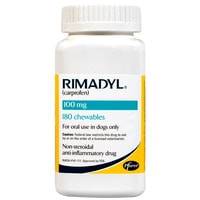
NSAIDs [non steroid anti inflammatory drugs]: widely given for pain, arthritis, surgery, etc.:
DERAMAXX: (deracoxib)
ETOGESIC: (etodolac)
METACAM: (meloxicam)
RIMADYL: (carprofen)
ZUBRIN: (tepoxalin)
PREVICOX: (Firocoxib)
GALLIPRANT
The best-selling drug known as Rimadyl, an anti-inflammatory medicine for pets, has been found to be deadly for many animals, as witnessed by the FDA receiving more than 6,000 bad reaction reports about the drug manufactured by Pfizer. As a result, the FDA requested that Pfizer advise consumers in their advertising that death was a possible side effect. Pfizer refused and pulled their advertising, however they have included "death" as a possible side effect on the drug label. Plans call for a "Dear Doctor" letter to be issued to veterinarians and a safety sheet will be attached to pill packages.
Pfizer acknowledges a problem with some dog owners, especially the consumer group which mounted a campaign dubbed BARKS, for Be Aware of Rimadyl's Known Side-effects (including loss of appetite, wobbling, vomiting, seizures and severe liver malfunction).
Veterinarians have failed to give out this warning when prescribing this medication, causing pet parents to be uninformed and cause possible harm or even death of their pets, thereby not having a choice as to whether to give this to their pets or not. These medications are to be used ONLY AS NEEDED or short term (2 weeks) and not on a daily permanent basis.
These drugs are used to manage pain and inflammation and not to be given on a regular basis. There have been reports of dogs dying after a first dose. Long term use of these medications can cause liver and kidney failure. To read a complete description of these drugs..click here. NSAIDs can cause more damage to the joints and cartilage so use ONLY short term. For long term solutions. Try Adequan or TRF 150/350 or Ostinol 150/350/450. CanineActiv is a great supplement for relieving mild-moderate pain and in some cases also severe pain.
DERAMAXX: (deracoxib)
ETOGESIC: (etodolac)
METACAM: (meloxicam)
RIMADYL: (carprofen)
ZUBRIN: (tepoxalin)
PREVICOX: (Firocoxib)
GALLIPRANT
The best-selling drug known as Rimadyl, an anti-inflammatory medicine for pets, has been found to be deadly for many animals, as witnessed by the FDA receiving more than 6,000 bad reaction reports about the drug manufactured by Pfizer. As a result, the FDA requested that Pfizer advise consumers in their advertising that death was a possible side effect. Pfizer refused and pulled their advertising, however they have included "death" as a possible side effect on the drug label. Plans call for a "Dear Doctor" letter to be issued to veterinarians and a safety sheet will be attached to pill packages.
Pfizer acknowledges a problem with some dog owners, especially the consumer group which mounted a campaign dubbed BARKS, for Be Aware of Rimadyl's Known Side-effects (including loss of appetite, wobbling, vomiting, seizures and severe liver malfunction).
Veterinarians have failed to give out this warning when prescribing this medication, causing pet parents to be uninformed and cause possible harm or even death of their pets, thereby not having a choice as to whether to give this to their pets or not. These medications are to be used ONLY AS NEEDED or short term (2 weeks) and not on a daily permanent basis.
These drugs are used to manage pain and inflammation and not to be given on a regular basis. There have been reports of dogs dying after a first dose. Long term use of these medications can cause liver and kidney failure. To read a complete description of these drugs..click here. NSAIDs can cause more damage to the joints and cartilage so use ONLY short term. For long term solutions. Try Adequan or TRF 150/350 or Ostinol 150/350/450. CanineActiv is a great supplement for relieving mild-moderate pain and in some cases also severe pain.
Try Adequan for canine arthritis. It's much safer!
C.E.T. AquaDent Dental Wash
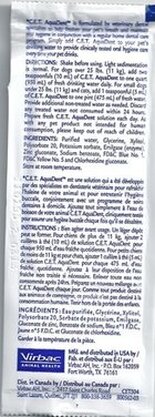
When you take your pet in for a teeth cleaning, the vet will usually send home with you some teeth cleaning products. One specific to watch out for is C.E.T. Aquadent. It contains xylitol which is extremely deadly to pets. WHY THIS COMPANY AND VETS have manufactured and approves of the sell of this product is beyond me. This is another classic example of not looking out for the best interest of our pets. DO NOT USE THIS PRODUCT!!!
To read more..click here.
The ingredients in AquaDent are listed as follows: Purified water, Glycerine, Xylitol, Polysorbate 20, Potassium sorbate, Emilgase (enzyme), Zinc gluconate, Sodium benzoate, FD&C Blue No. 1, FD&C Yellow No. 5, Chlorhexidine gluconate.
As Susan Thixton from Truth About Pet Food puts it: - Why would a pet product, formulated by "veterinary dental specialists", contain an ingredient that is known to be toxic to dogs? It's illogical and reckless. The moral of the story is this, read the ingredients of every single product provided to your pet. Just because a pet product is "formulated by veterinary specialists" doesn't mean it's safe.
To read more..click here.
The ingredients in AquaDent are listed as follows: Purified water, Glycerine, Xylitol, Polysorbate 20, Potassium sorbate, Emilgase (enzyme), Zinc gluconate, Sodium benzoate, FD&C Blue No. 1, FD&C Yellow No. 5, Chlorhexidine gluconate.
As Susan Thixton from Truth About Pet Food puts it: - Why would a pet product, formulated by "veterinary dental specialists", contain an ingredient that is known to be toxic to dogs? It's illogical and reckless. The moral of the story is this, read the ingredients of every single product provided to your pet. Just because a pet product is "formulated by veterinary specialists" doesn't mean it's safe.
Hill's Prescription Diet® Pet Foods
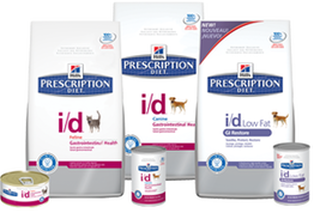
Although you may not consider this a medication or perhaps you trust your vet and do; vets certainly want you to think it is. There is NOTHING special about these foods other than they contain garbage ingredients.
Ingredients:
Whole Grain Corn, Brewers Rice, Dried Egg Product, Chicken By-Product Meal, Corn Gluten Meal, Pork Fat, Powdered Cellulose, Lactic Acid, Dicalcium Phosphate, Chicken Liver Flavor, Iodized Salt, Potassium Citrate, Choline Chloride, Calcium Carbonate, Potassium Chloride, Dried Beet Pulp, Soybean Oil, vitamins (L-Ascorbyl-2-Polyphosphate (source of vitamin C), Vitamin E Supplement, Niacin Supplement, Thiamine Mononitrate, Vitamin A Supplement, Calcium Pantothenate, Biotin, Vitamin B12 Supplement, Pyridoxine Hydrochloride, Riboflavin Supplement, Folic Acid, Vitamin D3 Supplement), Taurine, minerals (Ferrous Sulfate, Zinc Oxide, Copper Sulfate, Manganous Oxide, Calcium Iodate, Sodium Selenite), Mixed Tocopherols for freshness, Phosphoric Acid, Beta-carotene, Natural Flavors.
For more information on ingredients..click here.
This is on the Top Worst Dog Foods list..click here.
You can do more with a homemade diet than what this can do. This is horrible food and should NOT be labeled as RX when it is NOT. It is a way for pet food companies to make money and for vets to get kickbacks when they sell it.
***This is not limited to this brand of foods. It includes ALL pet foods sold in veterinary clinics labeled prescription. Do not feed any food with corn as most all of these have it.
Ingredients:
Whole Grain Corn, Brewers Rice, Dried Egg Product, Chicken By-Product Meal, Corn Gluten Meal, Pork Fat, Powdered Cellulose, Lactic Acid, Dicalcium Phosphate, Chicken Liver Flavor, Iodized Salt, Potassium Citrate, Choline Chloride, Calcium Carbonate, Potassium Chloride, Dried Beet Pulp, Soybean Oil, vitamins (L-Ascorbyl-2-Polyphosphate (source of vitamin C), Vitamin E Supplement, Niacin Supplement, Thiamine Mononitrate, Vitamin A Supplement, Calcium Pantothenate, Biotin, Vitamin B12 Supplement, Pyridoxine Hydrochloride, Riboflavin Supplement, Folic Acid, Vitamin D3 Supplement), Taurine, minerals (Ferrous Sulfate, Zinc Oxide, Copper Sulfate, Manganous Oxide, Calcium Iodate, Sodium Selenite), Mixed Tocopherols for freshness, Phosphoric Acid, Beta-carotene, Natural Flavors.
For more information on ingredients..click here.
This is on the Top Worst Dog Foods list..click here.
You can do more with a homemade diet than what this can do. This is horrible food and should NOT be labeled as RX when it is NOT. It is a way for pet food companies to make money and for vets to get kickbacks when they sell it.
***This is not limited to this brand of foods. It includes ALL pet foods sold in veterinary clinics labeled prescription. Do not feed any food with corn as most all of these have it.
Other Important items worth mentioning - AVOID!
All Natural Weed Killer and more: http://www.cedaroilstore.com/NATURE_S_DEFENDER_RID_A_WEED_AND_SPIDER_KILLER_p/lg6204.htm


